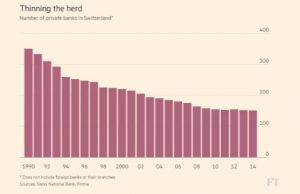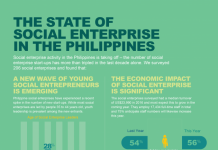A publication by Swiss Sustainable Finance (SSF) could be used as a tool to help advisors and intermediaries gain a grasp of and prepare for discussions in sustainable investing.
Based in Zurich and Geneva, SSF is a 90-member network of asset managers, private bankers, investors, universities, business schools and public financial entities.
Minding the Gap
There is a “major gap,” TruValue Labs says, between investors and their advisors during sustainable investment discussions.
More women and Millenials are interested in ESG and sustainability investing than their advisors, who presumably are older, are more male or are affected by misinformation or cognitive bias.
Swiss Private Banking’s Influence
“Private banking was invented in Switzerland,” says Boris Collardi of Julius Baer, a global Swiss Private Bank for institutional and private banking in the Financial Times. “This is a place where you keep your money . . . an island in the world for stability, solidarity.” Trends in Swiss Private Banking therefore, can be a bellwether for private investing trends elsewhere or in other regions.

Significantly and during the U.S. administration under President Obama however, Swiss private banking has declined, as scrutiny and taxes have increased. As of 2016, 150 Swiss Private banks remain (see figure).
Still, the industry is fighting back, expanding into emerging markets in Russia, Africa, Emirates and in China, where this week the One Belt, One Road Summit is in progress.
Its roots for preserving wealth for future generations and protecting assets for inheritance remain unchanged. Of the total CHF 190 billion invested in sustainable assets in 2015, CHF 48 billion were invested by private investors. It is in the spirit of those values that SSF has released its publication.
Highlights of the 10 SSF Arguments for Sustainable Investing
- An increasing body of research large indicates that companies performing well on sustainability measures are more profitable.
- Investing in sustainability can improve relationship trust between investor and advisor.
- Trust earned can captivate the attention of the next generation of investors, whose wealth is estimated to be $41 trillion.
- The use of meaningful and impacting “success” stories like those of Tesla in the U.S. offer additional discussion opportunities for advisors.
- Investor clients that are informed about the sustainability of their portfolios tend to look at longer horizons.
- Cite research and any performance data, financial and social, that indicate how it “pays to be sustainable.”
- Sustainability is a way of mitigating risks in terms of poor corporate behavior and potential damage to reputation.
- Adding a mix of sustainable investments (i.e. microfinance, low carbon indices) contributes to portfolio diversification.
- Most Swiss banks now have sustainable investment products among their offerings.
- Sustainable investments present an opportunity to differentiate Swiss private wealth management from others.
***
“Clients are interested in sustainable investing, but where to start as an advisor? In an effort to support this journey, four tools are outlined below:
(1) Prepare thoroughly for the initial forays into sustainability topics. A taxonomy of events and situations that are specifically suitable for initiating the conversation about sustainable investing;
(2) Prepare for a client conversation. Where to get information for an in-depth conversation once client interest has been voiced;
(3) Keep answers for common misperceptions handy. A list of potential misconceptions that could come up, together with corresponding answers;
(4) Be prepared for nasty questions. A list of questions that might come up during client discussions related to the personal stance of the advisor or bank on sustainable investment.”
Sources: Financial Times, Swiss Sustainable Finance








